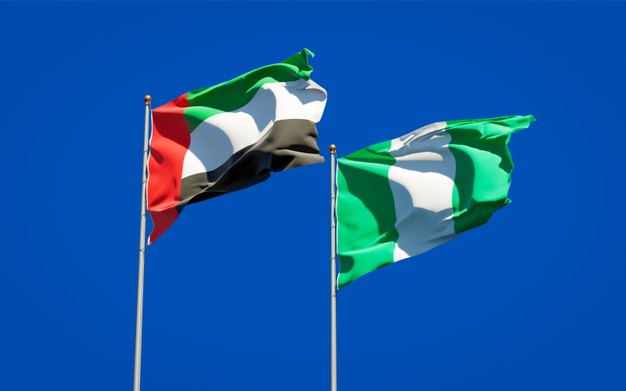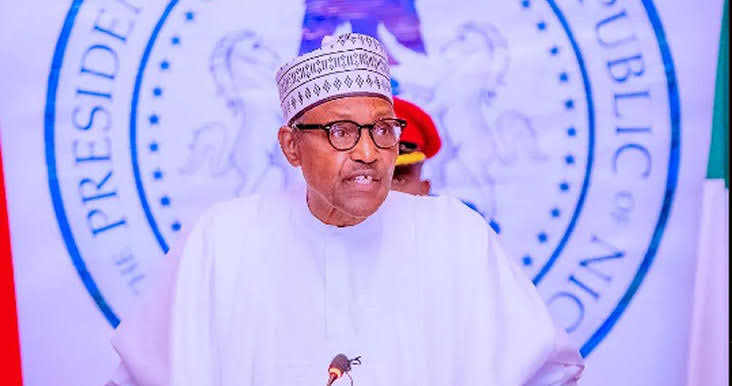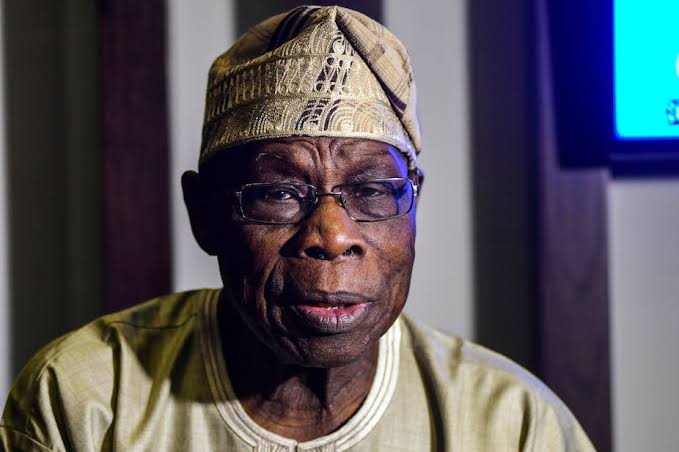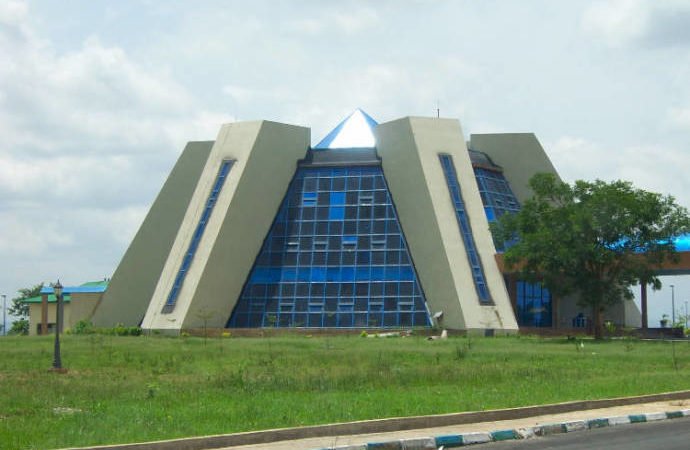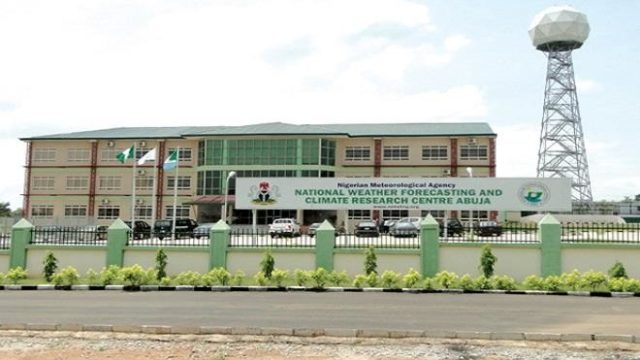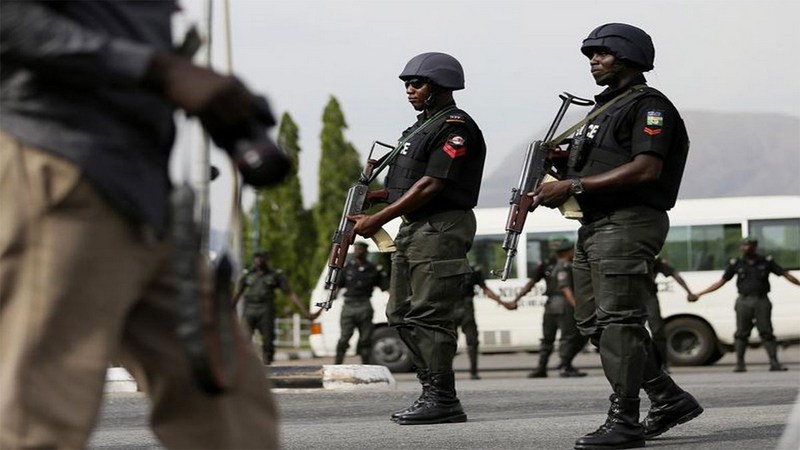The socioeconomic storm over Nigeria is by no means over, but by all indications, it is blowing away.
When I noted in my column titled “Rising Cost Of Living Crisis And Nicknaming Of President Tinubu T-Pain” that our country is on the pathway to regaining its past glory, so it behoves of us to make the sacrifice of leaving our comfort zone to face the reality of our economy which has been in dire straights needing rescue ,not many Nigerians were in agreement with me.
In fact ,some angry Nigerians literarily jumped into my throat.
The gripe of my traducers was that the ice was not thawing in the economy of Nigeria which had become frosty as a result of the ongoing reforms , which some describe as socioeconomic restructuring by another name.
Although the journey with President Bola Ahmed Tinubu as the president and commander- in-chief of the armed forces of Nigeria so far can best be described as a rough and tumble ride during which the weak and vulnerable have faced severe hardships, the storm seems to be calming down and all things being equal,the long suffering Nigerians who have been negatively impacted seem to be on the cusp of being able to breathe again-to borrow a phrase attributed to senate president,Godswill Akpabio.
It may be recalled that during a debate session in the red chambers on whether to make a decision that could further exert burden on Nigerian masses , in defense of the vulnerable in our society, Akpabio and other senators quipped “Let the poor breathe” eliciting laughter.
Thereafter the phraseology started trending in the social media to the extent that it has became a popular part of Nigerian lexicon.
Today, one can say without equivocation that Nigerians are beginng to regain their breath and there are a plethora of reasons for the assertion above.
Amongst them are:
(A)The naira-dollar rate of exchange that was at close to
N2000/$1 is currently trading at N1,450 or thereabouts to $1.
(B) Crude oil production which was at the rate of 900,000 to 1,000,000,per day is currently at a production rate of 1.7-1.8m barrels per day,including condensate.
(C)Petrol pump price which had risen to N1,300 when fuel subsidy got removed on the 29 May 2023, (the day president Tinubu was inauguarated ) is currently selling slightly above N900 per litre.
(D)lnflation rate which had nearly hit the 35% point a couple of weeks ago is currently 24.48%. Although the reduction is induced by the rebasing exercise that has just been carried out by government, and it is still more than the 15% that my friend, Dr.Taninu Yakubu, the director of Budget Office in the presidency had projected, its reduction is having a positive impact on the cost of living.
(E) Bank interest rate has dropped slightly to 27.5% with expectations that it will drop further with Central Bank of Nigeria, CBN’s Monetary Policy Commitee,MPC not raising,but maintaining it’s last 800 basis points.
Based on data from Bashir Adeniyi Centre For International Trade And Investment, BACITl investors carefully assess an economy before making investement decisions. Hence it reckons that a combination of the current economic fundamentals may result in:
“(1) Lower investment costs, making it cheaper for businesses to access credit (2)Appreciation of the local currency (naira),as the real interest rate(interest rate minus inflation) remains positive which ultimately raises investors confidence”
At this juncture l would like to crave the indulgence of readers to reproduce copiously the article published in my column where l made the case that there was no more space for prices to rise up to, so it was bound to remain stable , then start
dropping as it is currently doing.
Please find below a reproduction of the nearly three (3) months old article.
————————————————
“Rising Cost of Living Crisis And Nicknaming President Tinubu T-Pain.”
To summarize, the extensive socioeconomic reforms implemented by the current administration since May 29, 2023—about 18 months ago—are aimed at resetting our nation. This effort is crucial because we have been on the wrong path since the military coup of 1966, just three years after becoming a republic in 1963 and six years post-independence from British colonial rule, which began in 1885 following the Berlin Conference that partitioned the African continent.
In my opinion, the presidency shouldn’t be overly concerned about President Tinubu being nicknamed “T-Pain” by Nigerians feeling frustrated by the hardships. As humans, we naturally respond to pain and pleasure, so those suffering from the impacts of the president’s stringent reform policies have every right to express their feelings in whatever manner they choose.
If calling the president “T-Pain” provides some comfort to those affected by the reforms, even if it seems a bit harsh or playful, then that’s acceptable. Psychologists might suggest that this nickname could serve as a coping mechanism for Nigerians facing tough times. Perhaps, if President Tinubu successfully navigates the current economic turmoil, he could eventually earn the title of “Miracle Worker” from those who once referred to him as “T-Pain.”
Given this context, criticizing leaders is part of the political landscape and can serve as comic relief in an otherwise grim situation, even if the humor has a darker edge. Wasn’t it the same Tinubu, during his 2022/2023 presidential campaign, who was mocked for allegedly speaking nonsense, like “bala bulu”? Did he attempt to halt the spread of such disinformation?
For many Nigerians, it has been an eye-opening experience to realize that the opposition’s claims about Tinubu’s slurred speech as a sign of a serious health issue were unfounded. After winning the election in May of last year, he suddenly became articulate. It was as if a magic wand had been waved to eliminate the health issues his opponents claimed he had.
It is now evident that the allegations of Tinubu’s incoherence during the campaign were fabricated and part of the political gamesmanship of that time. I believe that just as he overcame those pre-election attacks, he will also succeed in improving the economy and, consequently, the living standards of ordinary Nigerians in the near future, barring any unforeseen circumstances.
Moreover, President Tinubu’s predecessor, Muhammadu Buhari (2015-2023), was also labeled ‘Baba Go Slow.’ Goodluck Jonathan (2010-2015), who Buhari succeeded, was called ‘clueless,’ and his wife, Patience, was mockingly referred to as ‘hippopotamus.’ Similarly, Gen. Ibrahim Babangida (1985-1993) was nicknamed ‘Maradona’ after the famous Argentinian footballer known for his exceptional dribbling.
It’s worth noting that the practice of assigning negative labels to leaders by their constituents is not unique to Nigeria. Similar instances have occurred in the United Kingdom, where the late Margaret Thatcher (1979-1990) was given the title ‘Iron Lady’ due to her lengthy battle with powerful labor unions that dominated the workforce in the UK before her time at No. 10 Downing Street, the residence of the British prime minister.
In the USA, former President Ronald Reagan (1981-89) had the moniker ‘Nuke Head’ attached to his name because of his perceived penchant for starting wars during his tenure.
In light of the above, nicknaming political leaders by those they lead is not an anathema but a universal phenomenon, as outlined above. Therefore, the Nigerian presidency cannot stop or ban by fiat those who are expressing their angst or resentment towards President Tinubu and referring to him as T-Pain, as my good friend Mr. Bayo Onanuga, Special Adviser to President Tinubu on Media and Publicity, is reportedly trying to do.
After all, President Tinubu is also popularly called ‘the Jagaban,’ and I believe he is unperturbed by the nickname—whether it portrays him in a positive or negative light.
Back in the days when then-Information and National Orientation Minister, the late Dr. Dora Akunyili, did not find it acceptable that our youths had rebranded Nigeria in their own lingo with the moniker ‘Naija’ and she banned it and tried to stymie it, she failed to succeed. As it turned out, her disapproval of the use of the term ‘Naija’ by our youths as an alternative to the name Nigeria was an exercise in futility because the nomenclature—‘Naija’—is apparently here to stay, as evidenced by its continued use against the dictate of the then-minister’s fiat or diktat.
One cannot help but recognize the resilience of Nigerians and their ability to navigate tough times, as evidenced by the numerous video skits and comedies dominating TikTok and other social media platforms.
The referenced comics that are making light of the otherwise very rough times that a critical mass of Nigerians are going through are, believe it or not, helping to diffuse the palpable tension in the polity. The rib-cracking jokes and comedies are too numerous to catalog in this piece. But one can bet that hardly anyone engaging with social media has not come across content parodying the dire straits in which Nigerians find themselves as they navigate the new environment created by the reform measures of President Tinubu’s administration, which are expected to ultimately help reset Nigeria.
Although the reforms are taking their toll on Nigerians today, Tinubu’s Renewed Hope agenda’s goal is clearly to be the harbinger of prosperity for our compatriots and posterity. As optimists, we pray that this mission is realized sooner rather than later. Already, inflation is ebbing, and our national debts are being paid off. Hopefully, bank interest rates will drop when the Central Bank of Nigeria (CBN) decides to ease the tight monetary control measures it introduced to rein in inflation following the convergence of the two foreign exchange windows inherited from its predecessor resulting a massive devaluation which has made the economy flush with naira.
Sometimes, the bad things that happen in our lives put us directly on the path to the best things that will ever happen to us. Social scientists refer to this as Post-Traumatic Growth (PTG), which is a positive transformation that can occur after experiencing adversity, trauma, or challenges. This manifests in the form of increased resilience, coping skills, and purpose, such that losing a job sparks entrepreneurship and success by adopting an attitude of resilience, as enunciated by Friedrich Nietzsche: “What doesn’t kill me makes me stronger,” and “Fall seven times and stand up eight,” which is a Japanese proverb.
The quotes above underscore and illustrate that adversity is not a dead end but a detour, because challenges can foster growth, wisdom, and strength—every experience, good or bad, shapes us. As we all get tossed up and down by the turbulent waves of hardship that have been occasioned by the incumbent administration’s socio-economic reform measures, we must develop coping mechanisms that will enable us to thrive in the face of adversity. It is worth remembering that, as human beings who must learn to respond to change, whether good or bad, our primary focus should not be on the hardship we are currently experiencing, but on how we respond to it and grow from it.
Of course, no person is without flaws, and President Tinubu, like all humans—especially those in politics—has his imperfections. However, his commitment to steering Nigeria out of its current economic struggles is evident. His success, however, depends on the support of the citizens, who must stand by him as patriots.
Therefore, I urge everyone to exercise greater patience, as the president is indeed responding to the concerns and struggles of the people. He has been making adjustments, such as replacing underperforming ministers, setting clear performance benchmarks, and reducing government expenses by limiting official cars and security details—steps that many of us have long advocated for, even if like the proverbial Oliver twist some Nigerians are still asking for more from President Tinubu who have allways averred that he is not soliciting the sympathy of Nigerians because he asked for the job, but appealing for the patience and support of the critical mass of down cast Nigerians to deliver on his mandate, which is a fair requirement and l urge us all to oblige him”
My prediction of a respite for the long suffering critical mass of Nigerians in a series of articles including another one titled: “Governing Nigeria ls Tough, But Tinubu ls Achieving Remarkable Progress”in my weekly column of at least three (3) months ago is now manifesting.
If president Tinubu remains steadfast in his reforms , especially when the four(4) tax reform bills receiving attention at the National Assembly , NASS finally get passed into law, Nigeria will truly be on the path to a reset. My optimism is underscored by the fact that a replacement of the colonial tax laws with new and operationally effective and productive ones as opposed to maintaining the old consumption ones will definetely unleash the hidden potentials of our great country.
Arising from the above, l would like to wager a bet that the best is ahead of Nigeria.
Magnus Onyibe, an entrepreneur, public policy analyst, author, democracy advocate, development strategist, alumnus of the Fletcher School of Law and Diplomacy, Tufts University, Massachusetts, USA, and a former commissioner in the Delta State government, sent this piece from Lagos, Nigeria.
To continue with this conversation and more, please visit www.magnum.ng.

